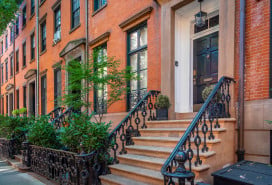Am I allowed to charge a late fee for my tenant who's always behind on rent?

I own a rent-stabilized building, and one of my tenants is always late on the rent. (He's currently two months behind.) Can I start charging him a late fee each month? And if so, how much can I charge? Am I allowed not to renew his lease if he is consistently behind on rent?
Since the lease is rent-stabilized, you can't introduce a late-fee policy if it wasn't in the lease to begin with, say our experts.
"You can't charge late fees unless it's in the original lease," says Sam Himmelstein, a lawyer who represents residential and commercial tenants and tenant associations. "Because under rent-stabilization, renewal leases always have to be on the same terms and conditions as the original lease."
And even if you were to charge late fees (or want to introduce the policy into the leases for future tenants), keep in mind that you have to name a specific amount, and that it can't be anything excessive or exorbitant. "The fees have to be reasonably related to the harm that the landlord suffers as the result of the late payment—it can't just be a penalty," says Himmelstein. "If the rent is $1,000/month, a $25 late fee doesn't seem unreasonable, but $200 might."
You also can't evict a tenant—or refuse to renew the tenant's lease—based solely on late payment on rent (or on the late fees). However, you can start a holdover preceding for chronic late rent payment, which, says Himmelstein, "is just a nice term for eviction. It's sort of like a nuisance case."
"What the courts have said is that if you repeatedly and unjustifiably pay your rent late—as opposed to withholding because of poor conditions, or having paid late because of a late benefits check—you can be evicted for chronic late rent payment," says Himmelstein.
As far as what can be considered "chronic," it can vary, and depend on your financial standing as a landlord. (As with the guidelines for late fees, the level of action taken here needs to line up with the level of trouble or financial hardship you're actually being caused by the tenant.)
"In other words, if a tenant just constantly pays by the 15th of the month or something, they might not get in trouble," says Himmelstein. "But if they don't pay for two months, and you serve them with a rent demand, then they don't pay again for two months, and you serve them with another rent demand—if that builds up," he says, the courts will likely side with you and intervene.
If you provide evidence that you have had to come after your tenant multiple times for overdue rent, courts typically impose a probation period, with the stipulation that if the tenant pays late again over a certain period (say, twice within the next year), they can potentially be evicted.
"But if you're a good tenant and pay on time for the next year, you can hold on to your apartment," says Himmelstein. "It's rare to see an eviction unless there's a violation of probation."
As for the actual late fees, if your tenant is behind on those (which are a separate matter from the actual rent), says Himmelstein, it's typical for landlords get a money judgment against the tenant—which is different than a judgement of possession (e.g. an eviction).
However, keep in mind that all of these stipulations are specific to a rent-stabilized tenancy. If the apartment were market-rate, the next time the lease renewal rolls around, you'd be able to add a new late fee policy.
Trouble at home? Get your NYC apartment-dweller questions answered by an expert! Send us your questions.
See all Ask an Expert.
You Might Also Like




























